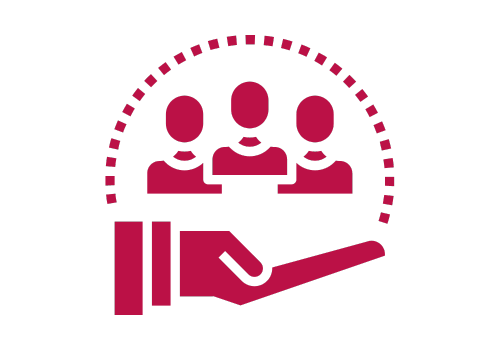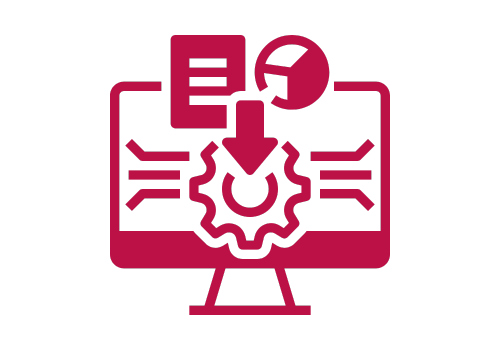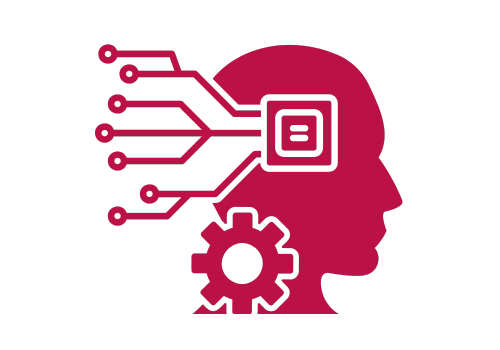Virtual Teamwork and Collaboration for Data Teams
Empowering Data Professionals in the Age of Remote Collaboration
Why This Training?
In an era where remote work is fast becoming the norm, effective virtual collaboration is no longer a luxury—it's a necessity. Especially for data teams, where collaboration ensures consistency, accuracy, and innovation. Dive deep into techniques tailored for data professionals and discover how to seamlessly work, communicate, and innovate across digital platforms.
Duration: 3 Hours (online / virtual live session)

Who Should Attend?
Data Scientists and Analysts: Improve your collaborative coding, data analysis, and project management in a remote setup.
Data Engineers: Optimize your remote data pipelines and infrastructure projects
Data Engineers: Optimize your remote data pipelines and infrastructure projects
See more
Project Managers and Team Leads: Learn how to manage and lead your remote data team effectively.
Any Data Professional: Who wishes to enhance their virtual collaboration and teamwork skills.
Any Data Professional: Who wishes to enhance their virtual collaboration and teamwork skills.

Course Highlights
Navigating the Virtual Landscape: Understand the unique challenges and benefits virtual data teams face.
Harnessing Collaborative Tools: Explore tools essential for data tasks, from version control to data visualization.
Harnessing Collaborative Tools: Explore tools essential for data tasks, from version control to data visualization.
See more
Communication Best Practices: Master both synchronous and asynchronous communication techniques.
Building Trust Remotely: Techniques to foster an atmosphere of trust and transparency in your team.
Feedback Mechanisms: Implement systems for continuous learning and improvement.
Celebrating and Team Building: Foster unity, celebrate achievements, and build a cohesive virtual team.
Building Trust Remotely: Techniques to foster an atmosphere of trust and transparency in your team.
Feedback Mechanisms: Implement systems for continuous learning and improvement.
Celebrating and Team Building: Foster unity, celebrate achievements, and build a cohesive virtual team.

Pre-requisites
Basic understanding of data team workflows.
Familiarity with at least one data-related software or tool (e.g., Python, R, SQL).
An interest in enhancing remote collaboration skills.
Familiarity with at least one data-related software or tool (e.g., Python, R, SQL).
An interest in enhancing remote collaboration skills.
Training Materials Needed by Participants
A stable internet connection.
A computer or laptop with a microphone and camera (for interactive sessions).
Access to platforms like Slack, Microsoft Teams, or Zoom (based on the specific session).
A GitHub account (for collaborative coding exercises).
Any dataset or project you're currently working on (for real-world application exercises).
Write your awesome label here.
Training Content
Virtual Teamwork and Collaboration for Data Teams
Session 1: Setting the Foundations for Virtual Collaboration in Data Teams
Understanding the Virtual Landscape:
- Challenges and advantages of virtual teamwork for data professionals.
- Importance of effective collaboration in data-driven projects.
Essential Tools for Virtual Data Teams:
- Overview of collaborative platforms (e.g., Microsoft Teams, Slack, Zoom).
- Data sharing and visualization tools (e.g., Tableau Online, Google Data Studio).
- Version control and collaboration platforms (e.g., GitHub, Bitbucket).
Setting Clear Objectives and Expectations:
- Importance of clear communication and setting objectives.
- Using OKRs (Objectives and Key Results) in a virtual data team setting.
Session 2: Effective Communication and Collaboration Practices
Building Trust in Virtual Teams:
- Fostering open communication and transparency.
- Regular check-ins and feedback loops.
Harnessing Collaborative Techniques:
- Brainstorming sessions and ideation.
- Pair programming and collaborative code reviews for data projects.
- Synchronous vs. asynchronous communication.
Overcoming Virtual Collaboration Challenges:
- Dealing with time zones and scheduling complexities.
- Avoiding communication breakdowns.
- Ensuring data security during virtual collaboration.
Session 3: Optimizing Productivity and Continuous Improvement
Establishing a Routine and Structure:
- Best practices for starting the day.
- Time management techniques for data professionals.
Feedback Mechanisms and Continuous Learning:
- Importance of feedback for continuous improvement.
- Platforms and methods for virtual training and upskilling.
Celebrating Successes and Team Building:
- Recognizing team achievements virtually.
- Virtual team-building activities tailored for data professionals.
- Closing thoughts and gearing up for the future of virtual collaboration.
WOMEN AI ACADEMY
Women AI Academy is a gender-equality and technology driven learning & development organization
Site Terms & Info
ETHOS AI Training & Consulting GmbH
Weihenstephanerstr.1281673
Munich-Germany
We are driven by the vision of making AI both ethical and accessible to everyone
Copyright © 2024 Brought to you by Ethos ai AI Training & Consultancy GmbH
Ali Hessami is currently the Director of R&D and Innovation at Vega Systems, London, UK. He has an extensive track record in systems assurance and safety, security, sustainability, knowledge assessment/management methodologies. He has a background in the design and development of advanced control systems for business and safety-critical industrial applications.
Hessami represents the UK on the European Committee for Electrotechnical Standardization (CENELEC) & International Electrotechnical Commission (IEC) – safety systems, hardware & software standards committees. He was appointed by CENELEC as convener of several Working Groups for review of EN50128 Safety-Critical Software Standard and update and restructuring of the software, hardware, and system safety standards in CENELEC.
Ali is also a member of Cyber Security Standardisation SGA16, SG24, and WG26 Groups and started and chairs the IEEE Special Interest Group in Humanitarian Technologies and the Systems Council Chapters in the UK and Ireland Section. In 2017 Ali joined the IEEE Standards Association (SA), initially as a committee member for the new landmark IEEE 7000 standard focused on “Addressing Ethical Concerns in System Design.” He was subsequently appointed as the Technical Editor and later the Chair of P7000 working group. In November 2018, he was appointed as the VC and Process Architect of the IEEE’s global Ethics Certification Programme for Autonomous & Intelligent Systems (ECPAIS).
Trish advises and trains organisations internationally on Responsible AI (AI/data ethics, policy, governance), and Corporate Digital Responsibility.
Patricia has 20 years’ experience as a lawyer in data, technology and regulatory/government affairs and is a registered Solicitor in England and Wales, and the Republic of Ireland. She has authored and edited several works on law and regulation, policy, ethics, and AI.
She is an expert advisor on the Ethics Committee to the UK’s Digital Catapult Machine Intelligence Garage working with AI startups, is a Maestro (a title only given to 3 people in the world) and expert advisor “Maestro” on the IEEE’s CertifAIEd (previously known as ECPAIS) ethical certification panel, sits on IEEE’s P7003 (algorithmic bias)/P2247.4 (adaptive instructional systems)/P7010.1 (AI and ESG/UN SDGS) standards programmes, is a ForHumanity Fellow working on Independent Audit of AI Systems, is Chair of the Society for Computers and Law, and is a non-exec director on the Board of iTechlaw and on the Board of Women Leading in AI. Until 2021, Patricia was on the RSA’s online harms advisory panel, whose work contributed to the UK’s Online Safety Bill.
Trish is also a linguist and speaks fluently English, French, and German.
In 2021, Patricia was listed on the 100 Brilliant Women in AI Ethics™ and named on Computer Weekly’s longlist as one of the Most Influential Women in UK Technology in 2021.

